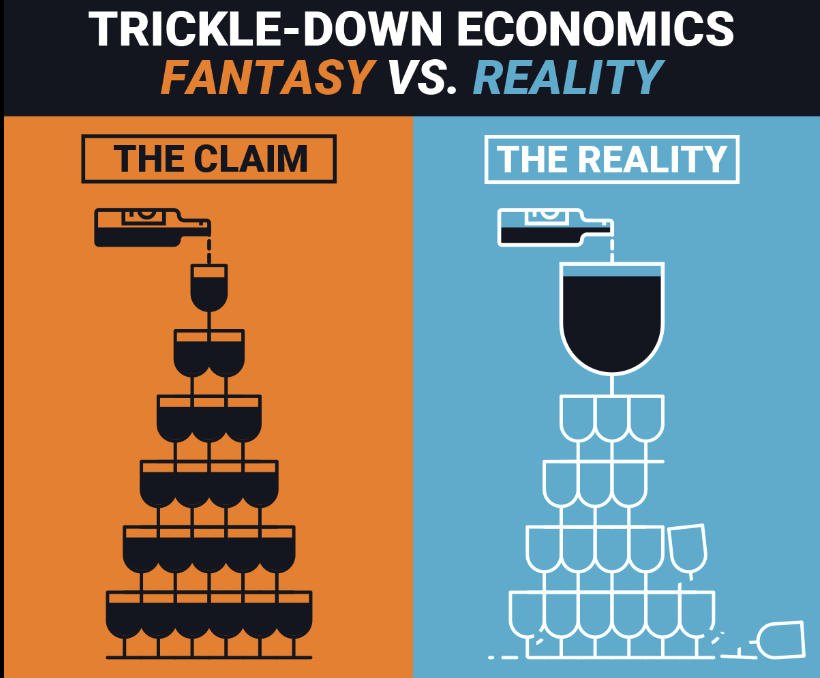A recent report of the International Labour Organisation titled – India Employment Report, 2024 has brought the limelight back to the problem of unemployment affecting the country. At the launch of the report, the Chief Economic Advisor to the Government of India, stated, “to think that for every social or economic problem there is a government intervention is not quite correct. We need to get out of this mindset. In the normal world it is the commercial sector, those who engage in for- profit activities, who need to do the hiring.”
The statement shifts the responsibility of job creation from the government to the private sector and conveniently evades the role of an elected government to regulate the economy. The statement also steers clear from the fact that the government in a decade failed to inspire or instil confidence of economic stability in the private sector. Instead it chooses to disregard the implication of the data this report reveals – the lack of market regulation that has aggravated the jobs crisis.
The Government of India which remains to the largest employer in the country currently employs 30.13 lakh persons in civilian jobs, this number is at its lowest since 2010. There are over 9.64 lakh sanctioned positions that lie vacant. The government is hiring workers on contract or as honorarium workers to keep the wheel of government functioning. A large number of these jobs with no government wage scale or social security are performed by women and workers from marginalised communities. Even the most conservative estimates point to an alarming figure – that almost 90 percent of Indian workers are engaged in informal employment.
Informal employment means that these jobs fall through the sieve of government regulation. In most cases, these jobs, do not fetch government notified minimum wages, are devoid of social security, health care and all other benefits that come with a formal job. The report reveals that over 70 percent workers engaged in agricultural and construction do not recieve minimum wages.
The lack of employment opportunities along with a dearth of decent paying, secure jobs discourage people to seek jobs altogether. This is reflected in the Labour Force Participation Rate (meaning total number of people of the working age who are either employed or looking for a job) has declined from 53.4 percent in 2012 to 42.4 percent in 2023.
It would not just be fair and correct to think that the government must hire people on regular and formal jobs and regulate the informal jobs so that they transition into formal jobs over a period of time in Government employments.
Another alarming yet not surprising trend revealed by the report is the exponential rise in so-called self-employment. Government’s own report ‘Key Unemployment Statistics For 2023’ released by the Ministry of Statistics and Programme Implementation confirms that the share of self employed people rose from 52.1 per cent in the year 2018–19 to 57.3 per cent in 2022–23. This self-employment, not entirely, but a significant part of it is linked to the rapidly expanding gig-work in the country. Companies are hiring large number of workers as “independent contractors” and denying them basic rights such as minimum wage, paid weekly off, sick leave and social security. From taxi hailing to food delivery to getting an ayurvedic massage or a house painted, everything is available a few clicks away through a digital platform that connects a ‘professional’ who is not recognised as a worker, to a client, who is not recognised as an employer. Most young people are forced to take up these jobs as ‘professionals’ or independent contractors because of grave situation of unemployment facing them, the ILO report has also revealed that of the total unemployed people over 83 percent are below 34 years of age.
It is for the government to regulate this gig-economy and ensure that these workers do not become invisible in the glitterati of venture capital funded start-up unicorns.
App-Based Worker Paid Sick and Safe Time law in the city of Seattle, USA is one such example. It checks the over exploitative zeal of companies which hire gig workers. Recently, Instacart, a grocery delivery company like Swiggy and Zomato has been fined $730,000 for violating the leave rights of over 5000 workers.
An argument oft used against the regulation of the companies is this will dent profits and discourage companies from generating employment at all. This argument also believes that the more profits the companies make and the more wealth they generate, the more employment they will create and the wealth will ultimately get distributed among the workers who will get better wages and job benefits. This is popularly touted as the trickle down theory.

Let us consider the net profit (profit after paying taxes) of the top 5 Indian companies namely Reliance, Tata Consultancy Services, HDFC Bank, ICICI Bank and Infosys Limited. Their net profits have increased exponentially over the years while the employment generated by them has at best remained stagnant and real wages to employees has declined. This is not a result of government regulation, but a lack of it. It is this lack of regulation of the labour market that has led us to this severe jobs crisis.
Only a clear employment policy, in tune with the industrial and environmental policy by the government can save the youth from the trap of self-employment and ensure decent work for all.

Leave a Reply